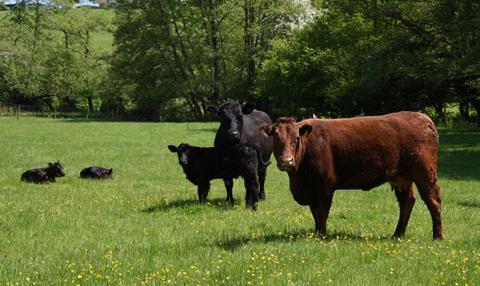Hybu Cig Cymru – Meat Promotion Wales (HCC) has thanked farmers for contributing to a major piece of research looking at the future of the livestock sector in the light of challenges posed by rising costs and post-Brexit changes to trade and support payments.

Over 400 beef and sheep farmers responded to a HCC survey in late 2022 looking at their future business intentions. The results have been used to inform future policy, with key headlines disseminated to government and industry.
In line with other surveys undertaken by farming unions and others, the results found that a significant minority of farmers were reducing stocking rates in the short term in response to rises in costs prompted by inflation and Russia’s war in Ukraine.
However, encouragingly 43% of sheep farmers reported no change in stocking numbers, and in fact 13% were increasing the size of their flocks. Those looking to keep slightly lower numbers (a reduction of 10% or less) amounted to 31% of the total sheep farmers.
Similarly, 40% of beef farmers had no intention of changing stocking rates, and 11% were looking to increase their numbers.
Significantly, a sizeable proportion of farmers were proposing to adapt their land management systems in order to become more efficient and sustainable, in response to current challenges.
Over 70% reported that they were reducing the use of fertilizer, with many looking to new methods of grassland management through reseeding or rotational grazing to ensure sufficient fodder without additional inputs to the soil.
HCC’s head of sustainability and future policy Rachael Madeley-Davies said: “This is extremely valuable data, which HCC has collated and disseminated to those who make policy which affects the livestock sector.
“Welsh beef and sheep farmers have provided a wealth of information which gives a nuanced picture of how they are responding to the short-term challenges of rising prices, and longer-term changes in trade and legislative structures after Brexit.
“Rising input costs was cited as the most common concern, but it is interesting to see many adopting progressive efficiency measures in order to adapt. These farmers will be in a strong position to produce both more profitably and more environmentally sustainably when stable conditions return. Other top concerns included uncertainty as to the framework of policy after Brexit, such as support payments, regulations on water quality and future trade agreements.
“A minority of farmers are making generally modest cutbacks on stocking levels, and it’s important that all within the industry recognise that a critical mass of production is vital to sustain thousands of jobs in agriculture, processing and related industries. However many are also optimistic about the future, and are investing in their businesses.”
This story was originally published on a previous version of the Meat Management website and so there may be some missing images and formatting issues.















